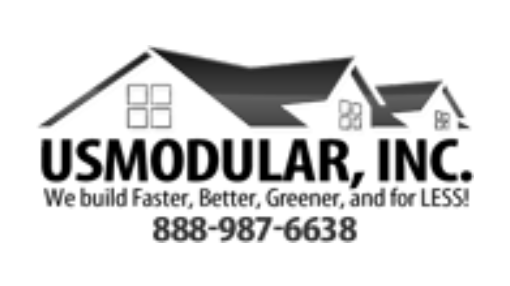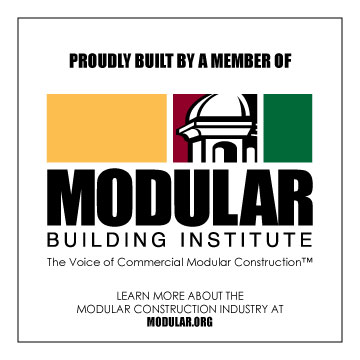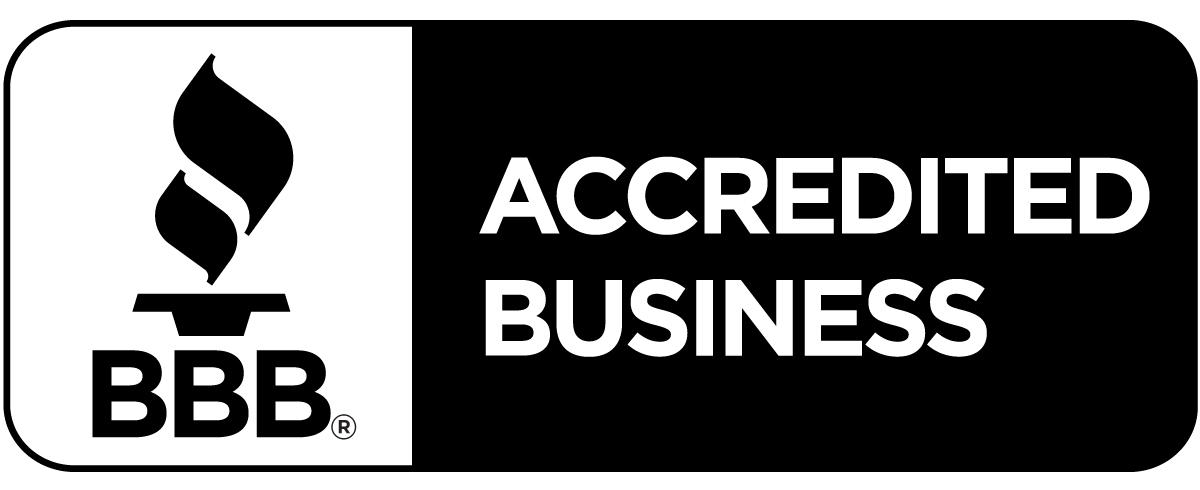Financing can be challenging for any homeowner, and many people in San Diego have the misconception that obtaining a loan for a Factory Built home is very difficult. This is simply not true.
First of all, what is a Factory Built Home in San Diego? The simple answer is these are homes built in a factory and then transported to the project site for installation. There are several types of homes that fall under the definition of Factory Built.
Manufactured Home, commonly referred to as a Mobile Home but they are different; are Factory Built homes built after June 15, 1976. Those homes are subject to the National Manufactured Housing Construction and Safety Standards Act of 1974 and are required to meet safety standards set by the U.S. Department of Housing and Urban Development (HUD). Those rules are often referred to as the HUD Code. The Federal Government established these regulations as a way to have a uniform construction code throughout the country to provide a more affordable housing option. These homes are built as complete as possible in the factory on a permanent steel under carriage with some final finish work required at the site location. These homes can be placed on private property on a permanent foundation system and considered “Attached” to the property, or placed in a park on leased land.
Please note, Mobile Homes are factory-built homes made before June 15, 1976. They may be very nice homes, but they were built before regulators required certain safety standards, and most (but not all) lenders are reluctant to lend on these homes. In California, many of these homes are still registered with the Department of Motor Vehicles and have a title similar to an automobile.
Modular Construction, these homes in San Diego in San Diego County are built to State and Local specific codes the same as onsite or stick-built construction. Modular Construction homes do not have a steel under carriage like a manufactured home. Once a Modular Home is placed on a foundation, it is not distinguished any differently from a site built home. Modular homes are as complete as possible when they are shipped from the factory. Site work includes placing the home on a foundation (usually a masonry stem wall foundation) and finishing the seam connection areas.
Panelized Homes, these are homes built in a factory as panels or components. Walls, floor, roof are literally built in sections, transported to the project site for assembly at the site. These homes are also built to State and Local specific codes the same as onsite or stick-built construction. Once completed, a Panelized Home also has no distinction differently from site built homes.
Buying a home in San Diego might be the largest investment you make in your life, and housing prices are above several hundred thousand dollars in many markets. But Factory Built homes are typically more affordable than site-built homes, so they make home ownership accessible. Especially for consumers with lower incomes and those who live in rural areas (where contractors and materials are not readily available), Factory Built housing may be the only option.
Where to Borrow
There are several ways to get funding for Factory Built homes in San Diego. As with any loan, it pays to shop among several different lenders. Compare the interest rate, features, closing costs, and other fees of every loan carefully. With any loan, the type of loan (or the lender you work with) is important.
Retailers: Builders that sell manufactured homes in San Diego typically arrange financing to make it easier for customers to buy homes. In some cases, your builder’s relationships may be your only option for funding when purchasing a new home. However, it’s wise to ask your builder for a list of several other (non-affiliated) lenders.
Specialized lenders: Several mortgage lenders specialize in loans for modular and manufactured homes (and land, if necessary). Although any lender may be able to fund your purchase, specialized lenders are more familiar with the aspects of a manufactured or modular home purchase—so they’re more willing to take applications for those loans. You’ll most likely need to work with a lender focused on the factory built market in the following situations:
- You won’t own the land.
- You won’t permanently attach the manufactured home to a foundation system.
- You are buying a manufactured home that is not brand new or one that has had modifications done.
- You want to refinance existing manufactured home debt, and any of the above apply.
Standard mortgage lenders: If you’re buying a home and the land it sits on, and the home is permanently installed on a foundation system, you’ll have an easier time borrowing. Many local banks, credit unions, and mortgage brokers can accommodate those loans.
Get recommendations for good lenders from people you trust. If you’re not sure who to ask, start with your real estate agent, employees and residents at mobile home parks, and people you know who have borrowed money to buy manufactured housing.
Chattel Loans
Chattel loans are often used for mobile and manufactured homes, especially when the home is going into a park or manufactured home community in San Diego. A chattel loan is a home-only loan (as opposed to a loan for the home and land together). Those loans are technically personal property loans—not real estate loans.
That said, chattel loans may also be available from a specialized lender when you own the land and borrow for a home separately.
When shopping with lenders, find out if you’re getting quotes for a chattel loan or a real estate loan. Interest rates on chattel loans tend to be higher than rates on real estate debt, but there are pros and cons to each option. A study by the Consumer Financial Protection Bureau (CFPB) found that loan amounts and processing fees were 40 to 50 percent lower on chattel loans when compared to mortgage loans, but the annual percentage rate (APR) on chattel loans was 1.5 percent higher.
Advantages of chattel loans include:
- You don’t need to own the real estate, which can keep your loan smaller (although you’ll likely pay monthly site fees).
- Processing costs should be lower than closing costs on real estate debt.
- The closing process is typically faster and less involved than closing on a real estate loan.
Disadvantages of chattel loans include:
- Interest rates are higher, so your payment and interest costs will be higher than if you use an equivalent real property loan.
- Repayment periods may be shorter (with a repayment term of up to 15 or 20 years, for example—although some lenders allow longer loans). A shorter term results in higher required monthly payments, but repaying debt faster keeps interest costs low.
Manufactured home dealers and specialized lenders in San Diego commonly offer chattel loans. The U.S. Census Bureau found that many new manufactured homes are titled as personal property. But some lenders offer both personal property loans and real estate loans. Speak with several lenders, and ask about the pros and cons of titling a home as real estate instead of personal property.
Government Loan Programs
Several government-backed loan programs can make borrowing for a home more affordable. Assuming you meet the criteria to qualify for those programs, you can borrow from mortgage lenders who get a repayment guarantee from the U.S. government—if you don’t repay the loan, the government will step in and pay the lender.
Government-backed loan programs are probably your best option for borrowing, but some mobile and manufactured homes will not qualify.
FHA loans are insured by the Federal Housing Administration (FHA). Those loans are especially popular because they feature low down payments, fixed interest rates, and consumer-friendly rules. To be eligible for an FHA loan for a manufactured home, several criteria must be met:
- The manufactured home must have been built after June 15, 1976.
- The manufactured home must comply with the HUD Code and meet other local requirements. Modifications to the home can bring it out of compliance.
- Each section of the home must have the red Certification Label (or HUD Label) attached. For example, on double wide homes, two labels are required.
There are two FHA programs available for manufactured homeowners.
FHA Title II loans include the popular 203(b) loan—also used for site-built homes—which allows buyers to make a down payment as small as 3.5 percent. To cover the cost of the government guarantee, you’ll pay an up-front mortgage insurance premium as well as ongoing mortgage insurance with each monthly payment. You need decent credit scores to qualify for an FHA loan, but your credit doesn’t need to be perfect. Plus, you can use gifted money to fund your down payment and closing costs, and you can even have the seller help out with those costs.
Title II loans are real estate loans, so you’ll need to buy the property and home together, and the home must be permanently installed on an approved foundation system. Loans can last 15 to 30 years.
FHA Title I loans are available for personal property loans—useful when you won’t own the land. However, if you’ll place the home on a rental site, your lease agreement needs to meet FHA guidelines. For example, you’ll need an initial lease term of three years, and you must be notified of any lease termination with at least six months’ notice. Required down payments might be as low as five to 20 percent, but that requirement varies from lender to lender and depends on your credit score. Additional requirements for a Title I loan include:
- The manufactured home in San Diego must be the borrower’s primary residence.
- The installation site must include sewer and water service.
- Brand new manufactured homes must include a one-year warranty.
- A HUD-approved appraiser must inspect the lot.
Title I loans can be home-only loans like chattel loans, but they can also be used to buy a lot and a home together. Maximum loan amounts on Title I loans are lower than maximums on Title II loans, and loan terms are shorter: For a single-wide home and lot, the maximum repayment term is 20 years.
VA loans are available to service members and veterans, and they can be used for manufactured and modular houses. VA loans are particularly appealing because of the ability to buy with no money down and no monthly mortgage insurance (assuming the lender allows it, and you meet credit and income requirements). Skipping the down payment means you’ll have higher monthly payments—and you’ll pay more in interest—but in some cases it makes sense. For a VA loan on a manufactured home:
- The manufactured home must be permanently attached to a foundation.
- You must buy the home together with the land it sits on and title the home as real property.
- The home must be a primary residence (not a second home or investment property).
- The home must meet HUD Code and have the HUD Labels attached.
FNMA loans are increasingly available for manufactured homes, as that agency plans to expand funding for affordable housing options. Ask your lender if any new programs are available for your upcoming purchase.
Different Lenders, Different Rules
What about a loan for a Modular Home? These homes are considered no different from a site built home. The challenge is many lenders are not familiar with the difference between a manufactured home and a modular home and mistakenly assume they are the same. Modular home retailers will have a relationship with lenders who are knowledgeable on modular homes and the lending process typically is no different than a “traditional” home loan.
Although some of the loans described above are backed by the U.S. government, lenders are allowed to set rules that are more restrictive than the government guidelines. Those “overlays” may prevent you from borrowing, but other banks might use different rules. That’s one more reason it pays to shop around—you need to find a lender with competitive costs, and you need to find a lender who will accommodate your needs.
Especially when it comes to manufactured homes, lenders may tell you that you don’t qualify for government-insured programs. That may be true, but it’s best to verify with several FHA or VA lenders before you give up on those options.
Some examples of areas where different lenders set different rules:
- Loan to value ratio: You might be able to put down as little as 3.5 percent, or you might be required to make a 20 percent down payment.
- Credit scores: Depending on your credit scores, some lenders might be unwilling to work with you, while others set different interest rates or down payment requirements based on your credit.
- Type of home: Some VA and FHA lenders are unwilling to lend on manufactured homes, but they may be more open to modular homes. Some are reluctant to finance single-wides, but they will fund double-wides or larger homes.
- Tenant occupancy: If you plan to live in a park or community, lenders may want to know how many residents rent compared to how many own their homes.
- Chattel vs. mortgage: Some lenders only offer chattel loans, so that’s the only product they’ll offer you. Likewise, some lenders do not make personal property loans.
What about Accessory Dwelling Units (aka Granny Flats or In-Law Units) and Tiny Homes; are these Factory Built Housing? The answer is Yes and No. Accessory Dwelling Units (“ADU”) in San Diego most certainly can be a factory built home. Financing for these is typically obtained by a construction/renovation loan, home equity line of credit taken on the existing primary residence, refinancing the primary residence mortgage, or personal loan. If you are not sure exactly what an ADU is, contact us to learn more. A Tiny Home is built in a factory, looks very much like a small home, but it is actually a Recreational Vehicle and is subject to DMV regulations and at this time cannot be used as a primary residence on private property or an ADU in California. This regulation may be changing in some jurisdictions. We’ll certainly post another article if and when this changes!
In summary, obtaining a loan for any Factory Built home is no more challenging than obtaining a loan for a site built home. The key is to do a little leg work and find the right lender. Any reputable factory home retailer will be able to assist you with finding a source for financing in San Diego.
Contact USModular, Inc. at info@usmodularinc.com or 888-987-6638



